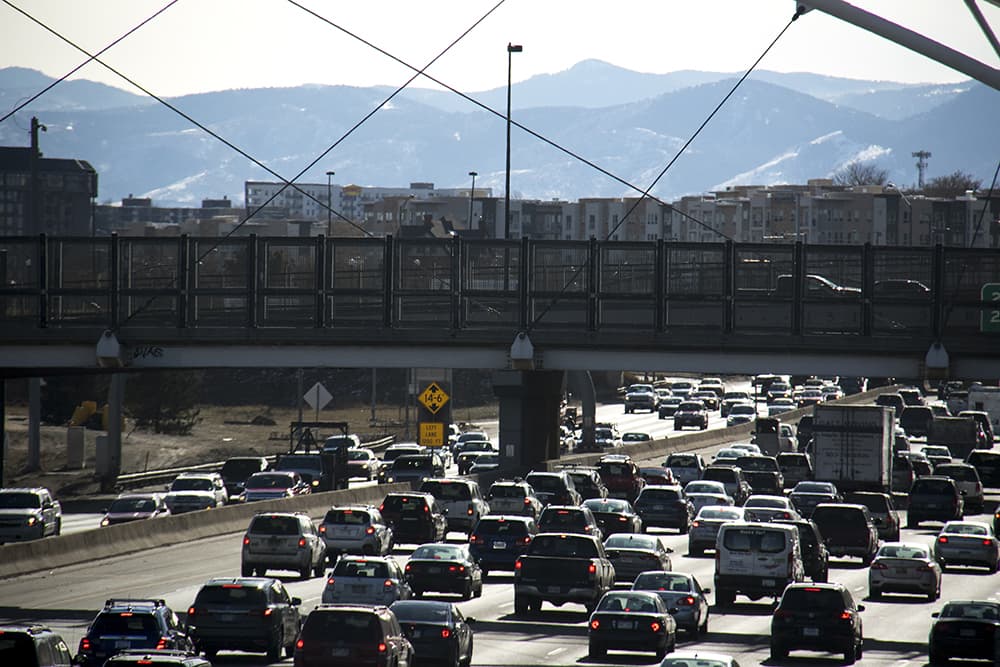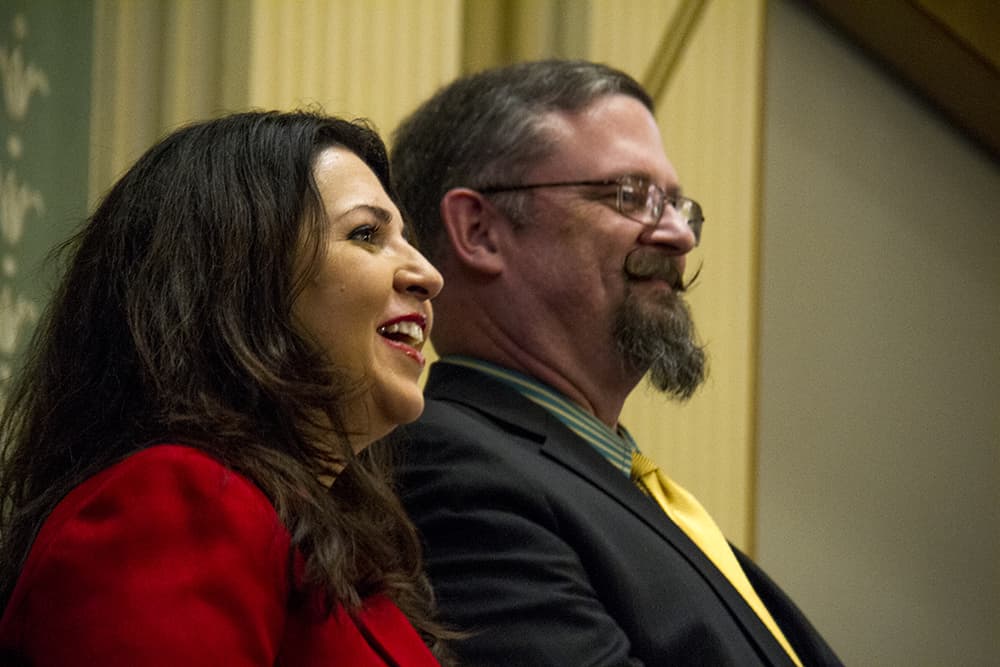
Colorado voters could be asked to approve a 0.62 percent sales tax dedicated to transportation -- and would get a break on vehicle registration fees in exchange for that -- under a proposal announced late Wednesday by leadership in the state House and Senate.
The bipartisan deal has been the subject of ongoing negotiations and much speculation since the start of the session. Both Republicans and Democrats have said getting more funding for transportation is a top priority, but there were disagreements on how to pay for it and how to allocate the money between highway expansions, transit and other modes that might reduce the need to drive. And because any deal that involves a tax increase has to go to the voters, the deal would need to address transportation issues across the state, including in less populous rural areas.
The deal, which was expected to come today, was announced via joint press releases from the House Democrats and the Senate Republicans after 5 p.m. Wednesday. If approved by the voters, the proposal would raise the statewide sales tax to 3.52 percent and generate about $680 million a year in additional tax revenue that would support $3.5 billion in bonding capacity. That money would be used to chip away at an estimated $9 billion in outstanding transportation needs.
HB 1242 is sponsored by Speaker of the House Crisanta Duran, Senate President Kevin Grantham and the chairs of the House and Senate transportation committees, Rep. Diane Mitsch Bush, a Democrat from Steamboat Springs, and Sen. Randy Baumgardner, a Republican from Hot Sulphur Springs. If approved by the House and Senate, the bill would place a measure to increase the state sales tax on the November ballot and make a series of reductions in state vehicle registration fees, which have previously gone to fund transportation needs.
The sales tax would go into effect in 2018 and last for 20 years. The first $300 million each year would go to the state highway fund for use by CDOT. Of the remaining revenue, 70 percent would go to counties and municipalities and 30 percent would go to a new multimodal transportation options fund.
The bill also requires that $50 million a year in existing revenue to dedicated toward transportation bond programs.
The bill reduces vehicle registration fees for the 20-year period that the tax increase is in effect. Motorcycles would go from $16 to $6, small passenger vehicles would go from $23 to $9 and larger vehicles would go from $28 to $11.
Many Republicans have said they would only accept a new tax if taxes or fees were cut elsewhere, while Democrats have said there needs to be new money put toward roads. While the proposal calls for offsets, it is not the revenue-neutral ideal that House Republicans have said they want.
In state budgeting, there are two issues -- having enough money and having it in a form that's liquid enough to apply it to the priority in front of you. Large portions of the state budget are not discretionary, and between requiring voter approval for new taxes and the declining power of the gas tax, which hasn't been increased since 1991, transportation was often coming up short. CDOT largely operates in maintenance mode right now.

“Every county and city in Colorado will share in the benefits from this transportation package,” Duran said in a statement. “And we will insist on transparency and accountability, so that voters will know where their dollars are going and how they will be used. This package, if approved by the legislature and the voters, would be a major step forward for this state and firmly position us for growth and prosperity for the next 20 years."
It's widely expected that the final version of the bill will look different than the proposal introduced today. At a mid-session report Wednesday afternoon, Gov. John Hickenlooper said he hadn't been privy to the negotiations and didn't seem overly concerned with the details for precisely this reason -- a final version is still months away. Hickenlooper did say he expects voters will want to know which projects the tax will fund and want assurances around accountability.
“Introduction of this transportation bill doesn’t mean we’ve arrived, just that we’ve hit another important mile marker on the long and winding road to a long-term transportation fix for Colorado,” Grantham said. “This bill probably isn’t what the final product will look like, because what’s being introduced is a work in progress and there’s still a lot of debate, compromise and hard work ahead before we’ll have a proposal good enough to pass muster with voters.
"But I’m optimistic that we’ll get there in the end.”












